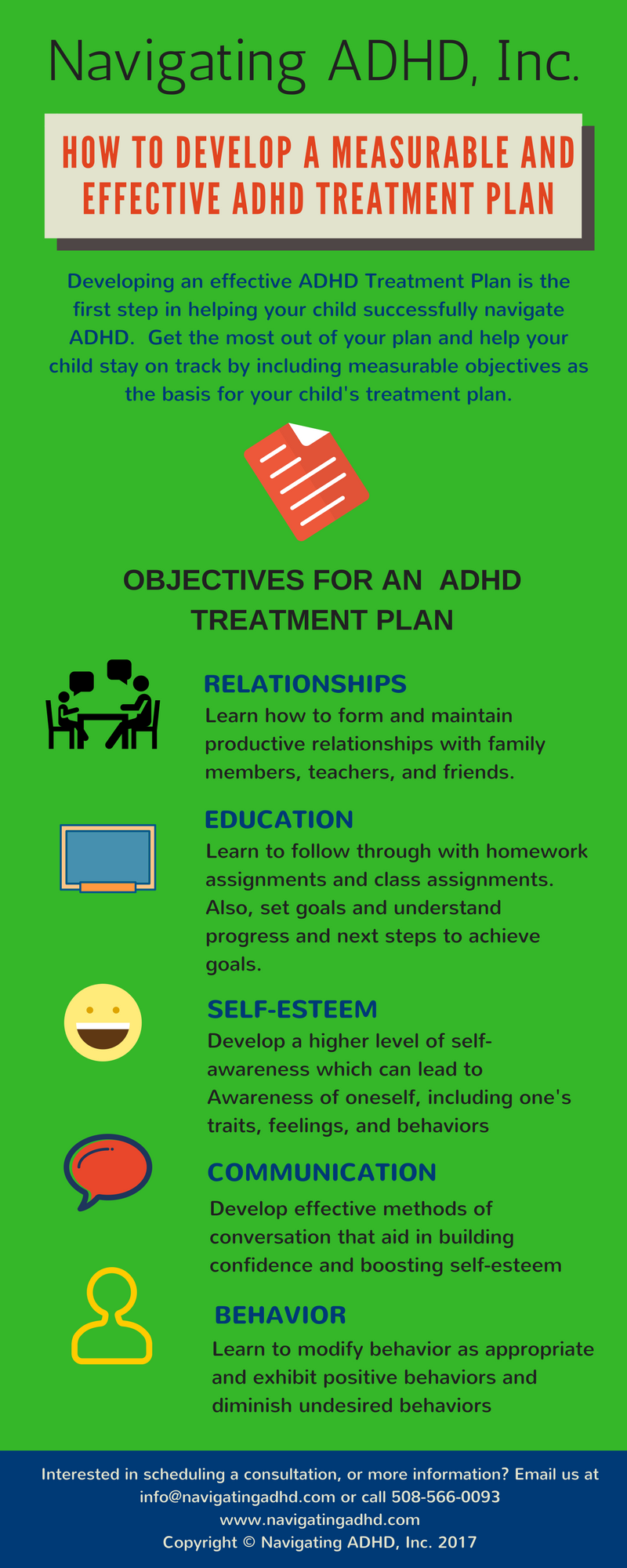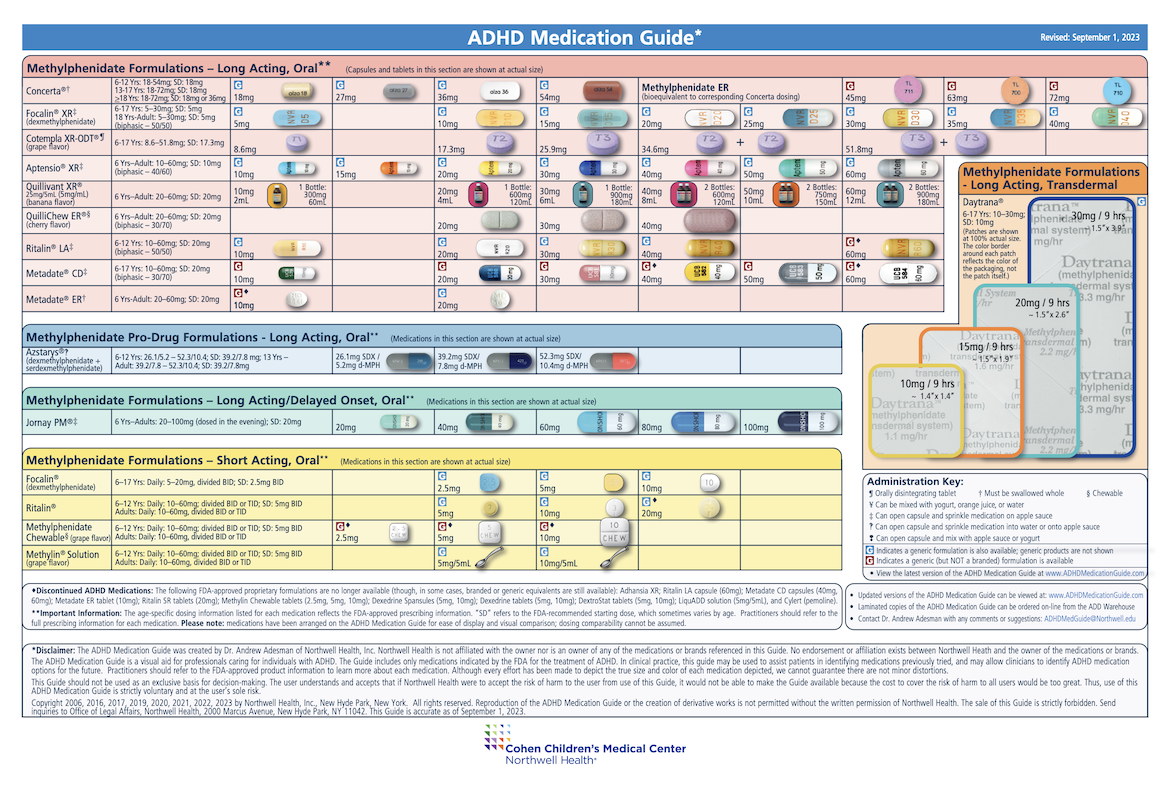Discovering Effective ADHD Treatment Options for All Ages
The intricacies of Interest Deficit Hyperactivity Problem (ADHD) present special challenges throughout different age teams, necessitating an extensive exploration of effective therapy options. A mix of behavior therapies, pharmacological treatments, and way of life modifications has actually shown pledge in resolving the varied requirements of people with ADHD. Nonetheless, the efficiency of these techniques can vary substantially based upon individual situations, raising vital concerns about customized methods. As we check out the spectrum of therapy techniques readily available, it comes to be important to think about not only their immediate influences however additionally their long-term implications for people and families.
Understanding ADHD and Its Effect
Attention-Deficit/Hyperactivity Disorder (ADHD) is a neurodevelopmental condition identified by persistent patterns of inattention, hyperactivity, and impulsivity that can considerably affect numerous aspects of an individual's life. It generally shows up in childhood, although signs can continue into adulthood. The core signs of ADHD can disrupt educational performance, impede social communications, and make complex work undertakings.
People with ADHD usually fight with maintaining emphasis on jobs, organizing tasks, and following up on guidelines, which can cause scholastic underachievement (Depression Treatment). In social contexts, impulsivity may result in problems in creating and maintaining relationships, as people may interrupt discussions or make rash choices without thinking about effects
The variability in sign presentation suggests that ADHD can affect people in a different way, necessitating a tailored method to management. Comprehensive awareness of ADHD's nature and implications lays the groundwork for exploring appropriate therapy alternatives customized to each person's requirements.
Behavioral Therapies for ADHD
Various behavior modifications have been created to successfully deal with the obstacles connected with ADHD, concentrating on customizing certain habits and fostering essential abilities. Among the most acknowledged approaches are cognitive-behavioral treatment (CBT), moms and dad training, and social abilities training.
CBT helps people identify and transform adverse idea patterns and actions, advertising an extra favorable outlook and boosted self-regulation. This treatment typically includes functional strategies for managing impulsivity and improving organization. Moms and dad training programs equip caretakers by outfitting them with methods to reinforce favorable behaviors and established regular limits, which can be especially useful for youngsters with ADHD.
Social abilities training is one more crucial element, training people with ADHD just how to engage successfully with peers - Depression Treatment. This approach often entails role-playing and comments to boost communication, collaboration, and conflict resolution abilities
Incorporating these behavioral treatments right into a detailed therapy plan can significantly enhance working and quality of life for people with ADHD. Inevitably, the performance of these therapies relies on customized methods that take into consideration the one-of-a-kind demands of everyone, therefore promoting durability and versatility in day-to-day live.
Medicine Options Available
For numerous individuals with ADHD, drug can play a considerable function in handling symptoms and enhancing general performance. The two main classifications of medications suggested for ADHD are stimulants and non-stimulants.
Energizers, such as methylphenidate and amphetamine-based medicines, are one of the most commonly used treatments. These medicines work by increasing the levels of neurotransmitters, especially dopamine and norepinephrine, in the brain, which assists improve focus and decrease impulsivity and hyperactivity. They typically generate rapid results, making them a recommended alternative for several individuals.

It is important for medical care suppliers to perform a thorough assessment to determine the most appropriate drug based on specific needs, case history, and possible negative effects. Normal follow-up and tracking are additionally vital to guarantee the efficiency of the picked treatment and to make any essential adjustments.
Lifestyle Adjustments to Think About
Managing ADHD successfully expands beyond medicine, as lifestyle adjustments can substantially boost general health and symptom control. Including check it out structured routines is essential; constant schedules help individuals with ADHD handle their time properly and decrease feelings of bewilder.
Regular exercise is another important component. Workout not just aids to improve concentration but additionally improves mood and lowers tension degrees. Tasks such as yoga or group sporting activities can be especially valuable, promoting both fitness and social communication.
Nutrition also plays a critical role. Depression Treatment. A balanced diet plan rich in omega-3 fats, whole grains, and lean healthy proteins can contribute to improved emphasis and cognitive feature. Restricting sugar and processed foods is advisable, as these can intensify hyperactivity and impulsivity
Sleep hygiene is crucial for taking care of ADHD symptoms. Developing a normal rest routine and developing a peaceful atmosphere can boost rest top quality, leading to better focus and emotional regulation.
Alternate and All Natural Techniques
Different and all natural approaches to ADHD therapy provide a varied array of options that complement standard methods. These approaches usually concentrate on way of life adjustments, nutritional treatments, and healing techniques that aim to improve overall well-being while dealing with ADHD signs.

Mindfulness and behavior modifications are likewise gaining traction as alternative interventions. Practices such as yoga exercise, reflection, and cognitive-behavioral therapy can cultivate self-regulation and boost interest. These techniques sustain psychological resilience, which is particularly valuable for individuals with ADHD.
Natural supplements, such as ginkgo biloba and ginseng, are sometimes explored; however, it is critical to speak with health care experts why not try this out prior to integrating these right into treatment strategies. While option and all natural methods can give important support, they should preferably be utilized combined with evidence-based therapies to achieve ideal results for managing ADHD across every ages.
Conclusion
In recap, efficient ADHD treatment necessitates an extensive strategy that includes behavioral treatments, medicine, lifestyle modifications, and alternative techniques. Customized interventions can significantly boost individuals' working and lifestyle, while appropriate drug guarantees optimal symptom monitoring. Embracing structured routines, engaging in normal physical task, and practicing mindfulness can enhance emotional policy and interest. This multifaceted strategy underscores the relevance of customized treatment in get more addressing the diverse demands of people with ADHD across all age teams.